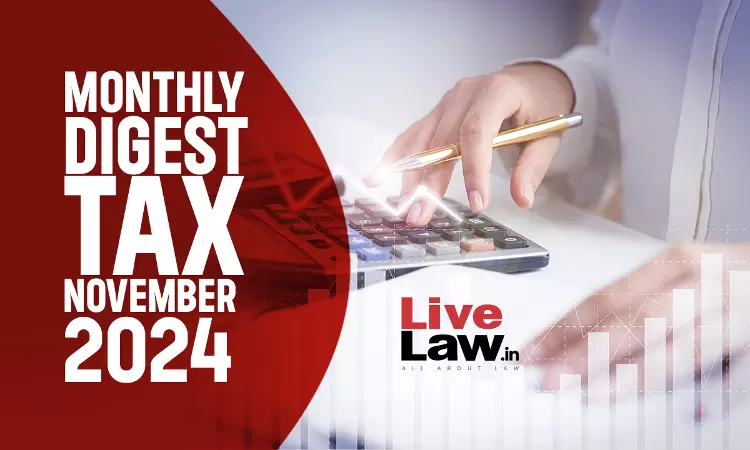Tax Monthly Digest: November 2024
Kapil Dhyani
3 Dec 2024 9:30 AM IST
SUPREME COURT DRI Officers Can Issue Show-Cause Notices Under Customs Act : Supreme Court Allows Review Against 'Canon India' Judgment Case Details : COMMISSIONER OF CUSTOMS vs. M/S CANON INDIA PRIVATE LIMITED Case no.: R.P.(C) No. 000400 - / 2021 The Supreme Court today (November 7) held that the officers of the Directorate of Revenue Intelligence(DRI) have the power...
Next Story



